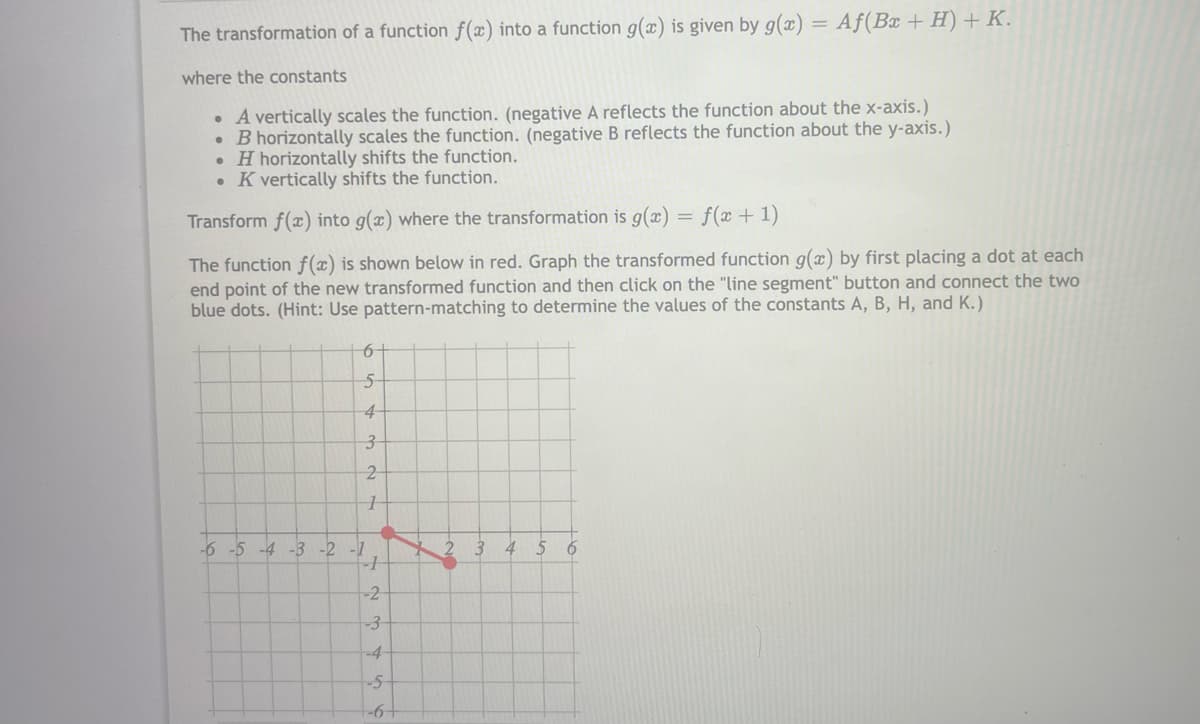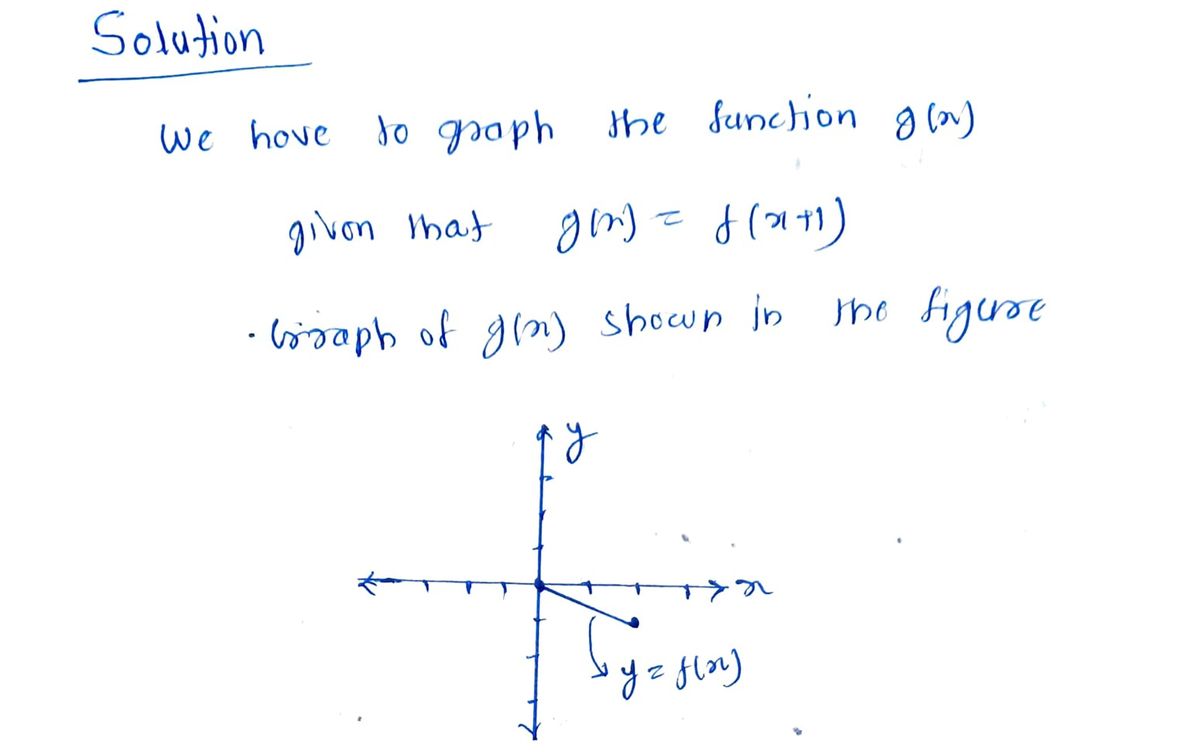The transformation of a function f(x) into a function g(x) is given by g(x) = Aƒ(Bx + H) + K. where the constants • A vertically scales the function. (negative A reflects the function about the x-axis.) • B horizontally scales the function. (negative B reflects the function about the y-axis.) • H horizontally shifts the function. • K vertically shifts the function. Transform f(x) into g(x) where the transformation is g(x) = f(x +1) The function f(x) is shown below in red. Graph the transformed function g(x) by first placing a dot at each end point of the new transformed function and then click on the "line segment" button and connect the two blue dots. (Hint: Use pattern-matching to determine the values of the constants A, B, H, and K.) -6 -5 -4 -3 -2 -1 6. -2 -3 -4- -5
The transformation of a function f(x) into a function g(x) is given by g(x) = Aƒ(Bx + H) + K. where the constants • A vertically scales the function. (negative A reflects the function about the x-axis.) • B horizontally scales the function. (negative B reflects the function about the y-axis.) • H horizontally shifts the function. • K vertically shifts the function. Transform f(x) into g(x) where the transformation is g(x) = f(x +1) The function f(x) is shown below in red. Graph the transformed function g(x) by first placing a dot at each end point of the new transformed function and then click on the "line segment" button and connect the two blue dots. (Hint: Use pattern-matching to determine the values of the constants A, B, H, and K.) -6 -5 -4 -3 -2 -1 6. -2 -3 -4- -5
Algebra & Trigonometry with Analytic Geometry
13th Edition
ISBN:9781133382119
Author:Swokowski
Publisher:Swokowski
Chapter3: Functions And Graphs
Section3.5: Graphs Of Functions
Problem 36E
Related questions
Question

Transcribed Image Text:The transformation of a function f(x) into a function g(x) is given by g(x) = Aƒ(Bx + H) + K.
where the constants
• A vertically scales the function. (negative A reflects the function about the x-axis.)
• B horizontally scales the function. (negative B reflects the function about the y-axis.)
• H horizontally shifts the function.
• K vertically shifts the function.
Transform f(x) into g(x) where the transformation is g(x) = f(x + 1)
The function f(x) is shown below in red. Graph the transformed function g(x) by first placing a dot at each
end point of the new transformed function and then click on the "line segment" button and connect the two
blue dots. (Hint: Use pattern-matching to determine the values of the constants A, B, H, and K.)
4-
-6 -5 -4 -3 -2 -1
-2
-3-
-4
-5
-69-
Expert Solution
Step 1

Step by step
Solved in 2 steps with 2 images

Recommended textbooks for you

Algebra & Trigonometry with Analytic Geometry
Algebra
ISBN:
9781133382119
Author:
Swokowski
Publisher:
Cengage


Big Ideas Math A Bridge To Success Algebra 1: Stu…
Algebra
ISBN:
9781680331141
Author:
HOUGHTON MIFFLIN HARCOURT
Publisher:
Houghton Mifflin Harcourt

Algebra & Trigonometry with Analytic Geometry
Algebra
ISBN:
9781133382119
Author:
Swokowski
Publisher:
Cengage


Big Ideas Math A Bridge To Success Algebra 1: Stu…
Algebra
ISBN:
9781680331141
Author:
HOUGHTON MIFFLIN HARCOURT
Publisher:
Houghton Mifflin Harcourt

Algebra and Trigonometry (MindTap Course List)
Algebra
ISBN:
9781305071742
Author:
James Stewart, Lothar Redlin, Saleem Watson
Publisher:
Cengage Learning